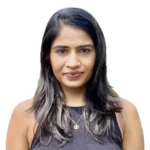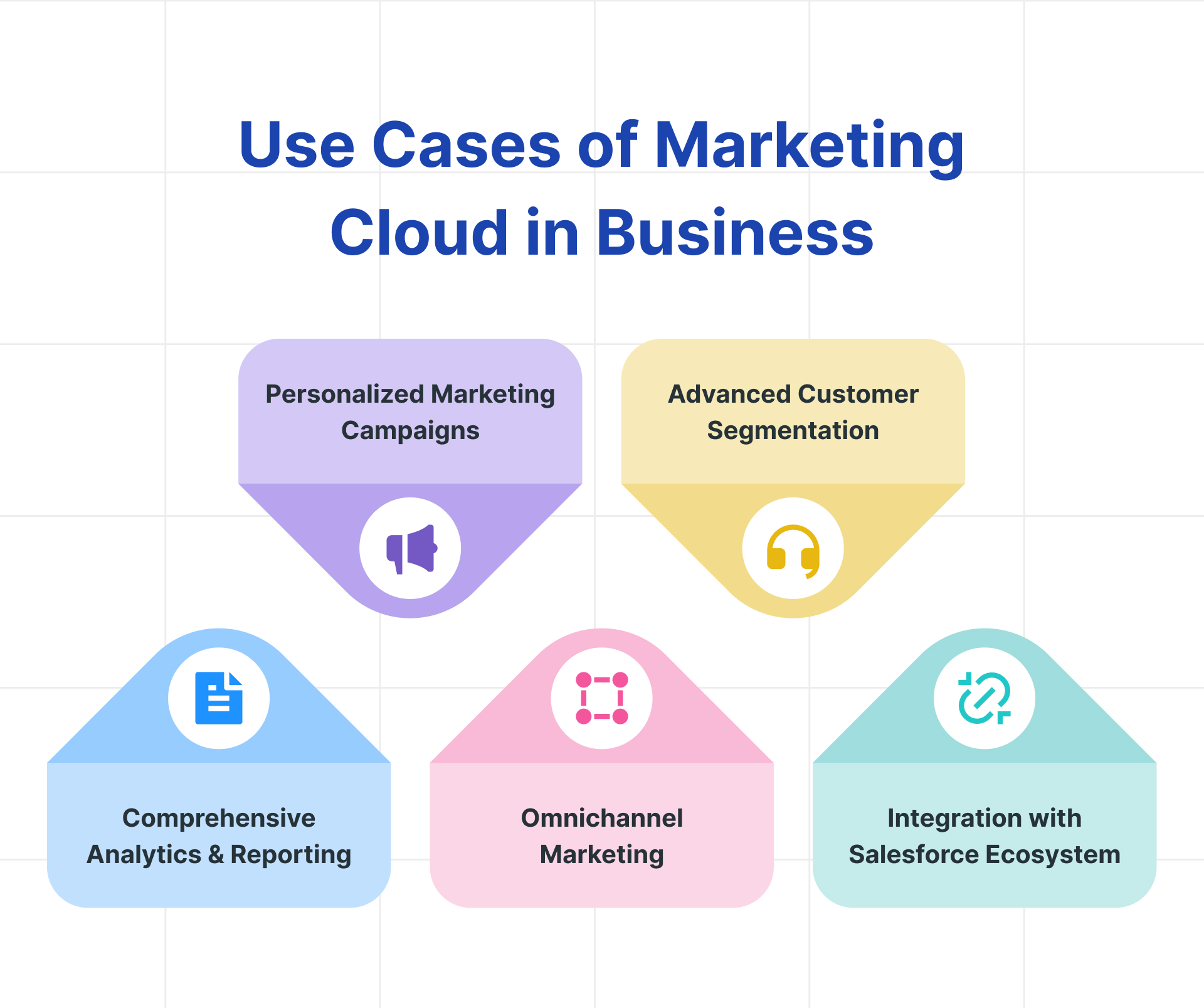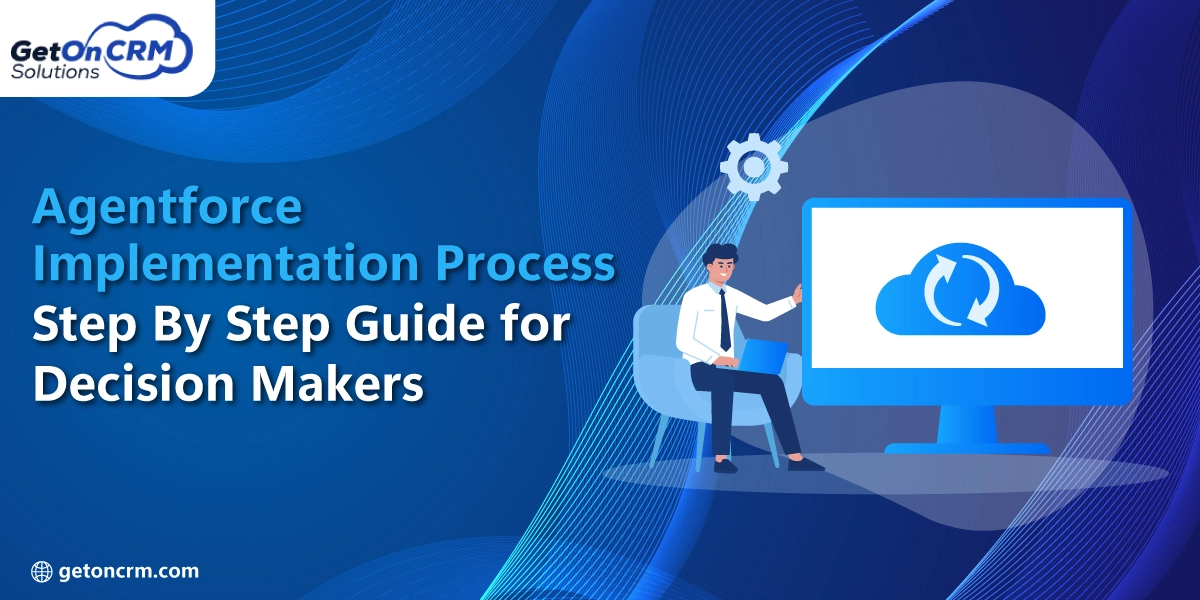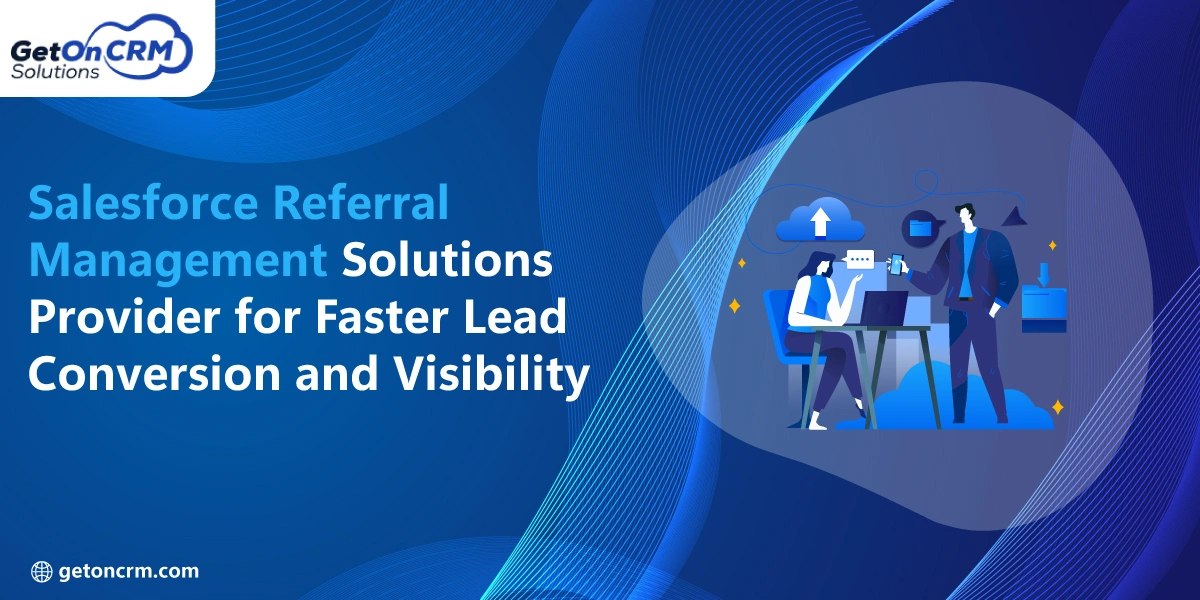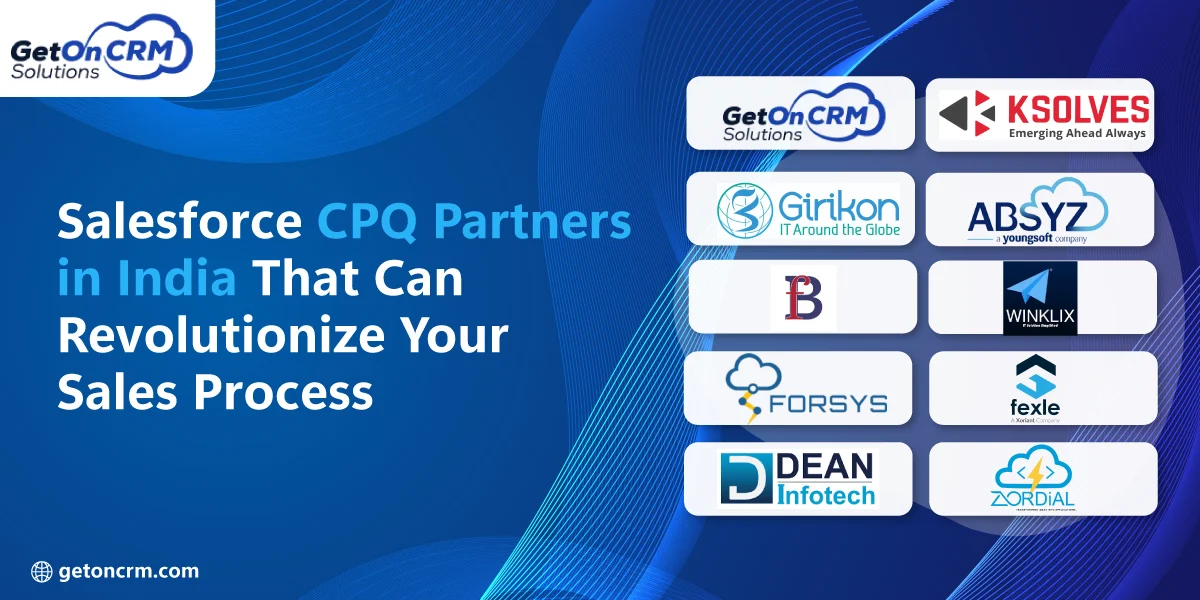In the modern marketplace, organizations rely more on sophisticated CRM and marketing automation systems to improve client interaction and drive growth. HubSpot and Salesforce Marketing Cloud are two major platforms that address these needs, with each providing unique features and capabilities. While HubSpot is popular for its easy-to-use interface and all-in-one marketing services, Salesforce Marketing Cloud differentiates out for its advanced customization and integration abilities, making it suitable for firms with complex marketing requirements.
So, one of our prominent US-based finance clients initially utilized HubSpot to manage their marketing operations. However, as their business expanded, they found HubSpot’s features needed to be improved to handle their growing customer base and intricate marketing strategies. Due to their need for a more reliable and scalable solution, they migrated to Salesforce Marketing Cloud, which provides a full range of tools for sophisticated customer segmentation, personalized marketing, and easy connectivity with other Salesforce products.
This blog attempts to assist businesses in migrating from HubSpot to Salesforce Marketing Cloud. Readers will explore the step-by-step migration process, technical considerations, potential challenges, and the significant impact this transition can have on their marketing efforts. Our consultancy’s role in facilitating a smooth and successful migration will also be highlighted.
Why Did the Need Arise to Shift from HubSpot to Salesforce Marketing Cloud?
Our client had been using HubSpot to manage their marketing automation and customer relationship management needs. However, as their business expanded and their customer base grew, they outgrew HubSpot’s capabilities. They required a more robust and scalable solution to handle their increasingly complex customer engagement strategies.
The Challenges
During the assessment phase, we identified several key challenges faced by our client:
- Limited Scalability: HubSpot’s infrastructure was insufficient to support the client’s growing customer base and complex marketing operations.
- Integration Issues: The client needed better integration capabilities to connect with other systems and tools used in their business processes.
- Advanced Customization Needs: HubSpot’s customization options were not robust enough to meet the client’s specific marketing requirements.
- Data Management: Managing large volumes of data within HubSpot became cumbersome and inefficient.
- Performance Constraints: As the client’s operations expanded, they experienced performance issues with HubSpot, affecting their marketing campaign execution and reporting capabilities.
Our Consultation
During our consultation, we assessed the client’s current marketing operations and future growth needs, identifying key limitations with HubSpot. Leveraging our expertise in providing consultation to our client, we demonstrated how Salesforce Marketing Cloud’s advanced features and scalability could address these challenges. Finally, we developed a tailored migration plan to seamlessly transition their data and processes to Salesforce, ensuring minimal disruption and maximum efficiency.
Migration Process
The transition involved meticulous planning and execution. We developed a tailored migration strategy, ensuring that all data, campaigns, and integrations were seamlessly transferred to Salesforce Marketing Cloud. Our team collaborated carefully with the client to adapt the platform to their unique requirements, offering assistance and guidance through the process to ensure a seamless transition.
Use Cases of Marketing Cloud in Business
Salesforce Marketing Cloud offers a myriad of use cases that can significantly enhance business operations:
- Personalized Marketing Campaigns: Using technologies such as Journey Builder and Einstein AI, organizations can develop individualized marketing campaigns that resonate with their target audience, resulting in increased engagement and conversion rates.
- Advanced Customer Segmentation: Salesforce Marketing Cloud enables extensive segmentation based on consumer behavior and data, allowing organizations to target their campaigns effectively.
- Comprehensive Analytics and Reporting: The platform has advanced reporting and analytics features that enable firms to obtain useful insights into their marketing success and make informed choices.
- Omnichannel Marketing: Businesses can manage and deliver marketing messages across various channels, including email, mobile, social media, and web, ensuring a consistent and cohesive customer experience.
- Integration with Salesforce Ecosystem: By integrating with other Salesforce products, businesses can create a unified customer view, streamline operations, and enhance collaboration across departments.
How Should the Migration be Executed?
The migration from HubSpot to Salesforce Marketing Cloud necessitates a thorough and planned approach. First, an extensive analysis of existing systems is conducted to detect all key data and activities. Then, a carefully planned data transfer is carried out to ensure correctness and integrity. Finally, extensive testing and user training are conducted to ensure a smooth transition.
Comprehensive Step-by-Step Migration Methodology
- Initial Assessment and Planning: We started by extensively evaluating our client’s current HubSpot configuration and establishing the scope, timeline, and required resources for the migration project. This evaluation step was crucial in understanding our client’s business objectives and identifying major pain points to address during the migration.
- Data Preparation: To ensure data accuracy and consistency, we meticulously cleaned and validated data in HubSpot before transferring it to Salesforce Marketing Cloud. That involved eliminating duplicates, standardizing formats, and mapping data fields to align with Salesforce’s structure. By preparing data meticulously, we minimized risks associated with data integrity issues post-migration.
- Platform Setup in Salesforce Marketing Cloud: We configured Salesforce Marketing Cloud to meet our client’s specific needs, setting up user profiles, permissions, and platform settings accordingly. This customization ensured that Salesforce Marketing Cloud was optimized to support our client’s marketing automation and customer engagement strategies effectively.
- Data Migration: Our team executed the migration of customer information, campaign data, and other critical datasets from HubSpot to Salesforce Marketing Cloud. Rigorous validation processes were implemented throughout the migration to verify data accuracy and completeness. By maintaining strict adherence to data mapping protocols, we ensured a seamless transition of data without disruptions to our client’s operations.
- Integration with Other Tools and Platforms: We designed and implemented custom integration solutions to facilitate seamless communication between Salesforce Marketing Cloud and other tools/platforms used by our client. Thorough testing was conducted to ensure that data synchronization and interoperability were optimized across all integrated systems.
- Campaign Migration: Existing marketing campaigns from HubSpot were migrated to Salesforce Marketing Cloud, including all associated assets and configurations. Each campaign underwent thorough testing to validate functionality and performance, ensuring continuity and effectiveness in the new platform environment.
- Training and Adoption: We provided comprehensive training sessions to equip them with the information and skills required to navigate and exploit Salesforce Marketing Cloud properly. The training addressed platform functionalities, campaign management, and best practices, instilling confidence and proficiency in users.
- Testing and QA: Before launching Salesforce Marketing Cloud, a number of tests and QA procedures were put in place to find and fix any problems. The platform was put through performance and user acceptability testing (UAT) to make sure it fulfilled our client’s requirements for functionality, dependability, and performance.
- Go-Live and Post-Migration Support: We facilitated a smooth transition to Salesforce Marketing Cloud, providing dedicated support during the go-live phase to address any immediate issues or concerns. Post-migration support ensured ongoing system stability and user satisfaction, with proactive monitoring and troubleshooting to maintain operational continuity.
- Continuous Improvement: Our approach to constant improvement involved regular reviews and optimizations of Salesforce Marketing Cloud’s performance. We collaborated with our client to identify opportunities for refinement and enhancement, ensuring that the platform evolved in alignment with changing business needs and market dynamics.
Technical Considerations to Keep in Mind While Migrating
When migrating from HubSpot to Salesforce Marketing Cloud, there are several technical aspects to consider:
- Data Migration and Integrity: Ensure that all customer data, campaign history, and other relevant information are accurately transferred. Maintain data integrity to avoid loss of valuable information.
- Integration with Other Tools and Platforms: Plan integrations carefully to avoid disruption. Salesforce Marketing Cloud offers robust integration capabilities, but testing is essential.
- Customization and Configuration: Customize the platform to meet the unique needs of the business. It requires careful planning and configuration.
- Training and Adoption: To ensure that the staff is able to use the new platform efficiently, provide thorough training.
- Compliance and Security: Configure security settings correctly to ensure compliance with data protection regulations.
- Cost Implications: Assess the costs associated with migration, including data transfer, training, and potential downtime. Consider long-term cost implications.
- Support and Maintenance: Plan for ongoing support and maintenance, including regular updates and troubleshooting.
Key Challenges in the Migration Process
Migrating from HubSpot to Salesforce Marketing Cloud can present several challenges:
- Data Loss or Corruption: Conduct a comprehensive backup and validate data integrity post-migration.
- Downtime and Disruption: Plan the migration during off-peak hours and have a contingency plan.
- Integration Issues: Carefully plan and test integrations to ensure smooth data flow.
- Customization and Configuration: Engage with experts to ensure the platform supports the unique requirements of the business.
- Data Mapping and Transformation: Conduct a thorough review of data mapping and transformation requirements.
- Budget and Resource Constraints: Develop a detailed budget and resource plan. Monitor progress and make adjustments as needed.
- Post-Migration Issues: Have a dedicated support team in place to address any issues that arise post-migration.
Post Impact on Business After Shift to Marketing Cloud
After migrating to Salesforce Marketing Cloud, our client experienced significant improvements in their marketing operations:
- Enhanced Scalability: The platform’s scalability supported its growing customer base and complex marketing needs.
- Improved Customer Engagement: Using a 360-degree picture of their customers and powerful personalization capabilities, they delivered more relevant and customized communications.
- Better Analytics and Reporting: In-depth analytics provided valuable insights, helping refine their marketing strategies for maximum impact.
- Seamless Integration: Integration with other Salesforce products facilitated seamless communication and data sharing across departments.
- Increased Efficiency: Customization and automation capabilities enhanced operational efficiency and effectiveness.
How did we help as a consulting partner with the whole process?
A reliable consulting partner is essential for ensuring a smooth and successful migration to products like Salesforce Marketing Cloud. They offer strategic planning to develop a tailored migration strategy, provide technical expertise to navigate the platform’s complexities and mitigate risks such as data loss and system downtime. Additionally, they use the platform’s features for customization and optimization, provide comprehensive training and support to ensure effective use of the new system, and offer ongoing maintenance to address any post-migration issues.
GetOnCRM is a Salesforce-ridge consulting partner; we can guide you in implementing any product. We did this for our US-based finance client. We assessed and planned, migrated data, customized the Salesforce platform, integrated with existing tools, optimized campaigns, conducted training sessions, and provided ongoing support.
Maximizing Impact with Seamless Migration
HubSpot to Salesforce Migration is a major step that will have a huge impact on your marketing operations. Understanding the complexities, addressing potential challenges, and utilizing the experience of a trustworthy consulting partner can all help ensure a smooth transition that maximizes Salesforce Marketing Cloud’s potential.
We are here to help you through every step of the process, giving you the knowledge and assistance you need to complete a successful migration and boost your marketing initiatives.
GetOnCRM is committed to delivering transformative migration solutions that drive business outcomes. Whether you’re considering a migration or looking to optimize your current Salesforce Marketing Cloud setup, we’re here to help you achieve your goals.
Frequently Asked Questions on HubSpot to Salesforce Marketing Cloud Migration
Why migrate from HubSpot to Salesforce Marketing Cloud?
Salesforce Marketing Cloud offers advanced automation, scalability, and integration. It’s ideal for growing businesses seeking deeper insights and better personalization.
Is data migration from HubSpot to Salesforce difficult?
With the right tools and expertise, migration is smooth. Data accuracy and careful mapping are key to success.
Can businesses lose data during migration?
No, if handled properly. Professional migration ensures all data, including contacts and campaigns, transfers safely.
How long does migration usually take?
Timelines vary by data size. Smaller businesses may complete migration in weeks, while larger enterprises may take longer.
Does Salesforce Marketing Cloud offer better reporting than HubSpot?
Yes. Marketing Cloud provides deeper analytics, AI insights, and customizable dashboards for more accurate campaign tracking.

